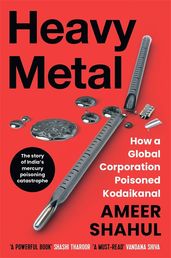Synopsis
INDIA’S IMMUNIZATION STORY – FROM COLONIAL TESTING GROUND TO GLOBAL VACCINE HUB
When Edward Jenner pricked a young boy’s arm in 1796 to inoculate him against smallpox, he ignited a revolution. Vaccination would go on to transform human health, enabling the eradication and prevention of deadly diseases and saving countless lives. But India remained on the margins of these developments – its people often subjects of Western trials, but its own scientific institutions underdeveloped.
This began to change in 1893, when Soviet-born scientist Waldemar Haffkine arrived in Calcutta to combat endemic cholera. His pioneering efforts laid the groundwork for India’s first vaccines and vaccine laboratories and inspired a generation of scientists like Sahib Singh Sokhey and Shanti Swarup Bhatnagar, who, after Independence, transformed vaccination into a national mission of self-reliance.
Vaccine Nation is the untold chronicle of how India emerged from colonial dependency to become a global vaccine powerhouse. From the battles against cholera and plague to mass campaigns against polio, tuberculosis and typhoid, the founding of the Serum Institute and the creation of COVAXIN and COVISHIELD, this is a saga of resilience, scientific ingenuity and defiance in the face of global pharma monopolies and resource-constrained public health systems. Today, India vaccinates over a billion people and supplies affordable vaccines to most of the nations across the Global South. But with the rise of geopolitical tensions, pandemic fatigue and profitdriven global markets, a new question looms: Can India retain its humanitarian spirit in a world where public health is increasingly privatized?
Sweeping in its scope, Vaccine Nation offers a comprehensive account of India’s epic immunization journey – a story of ambition, sacrifice and the making of a scientific nation.

